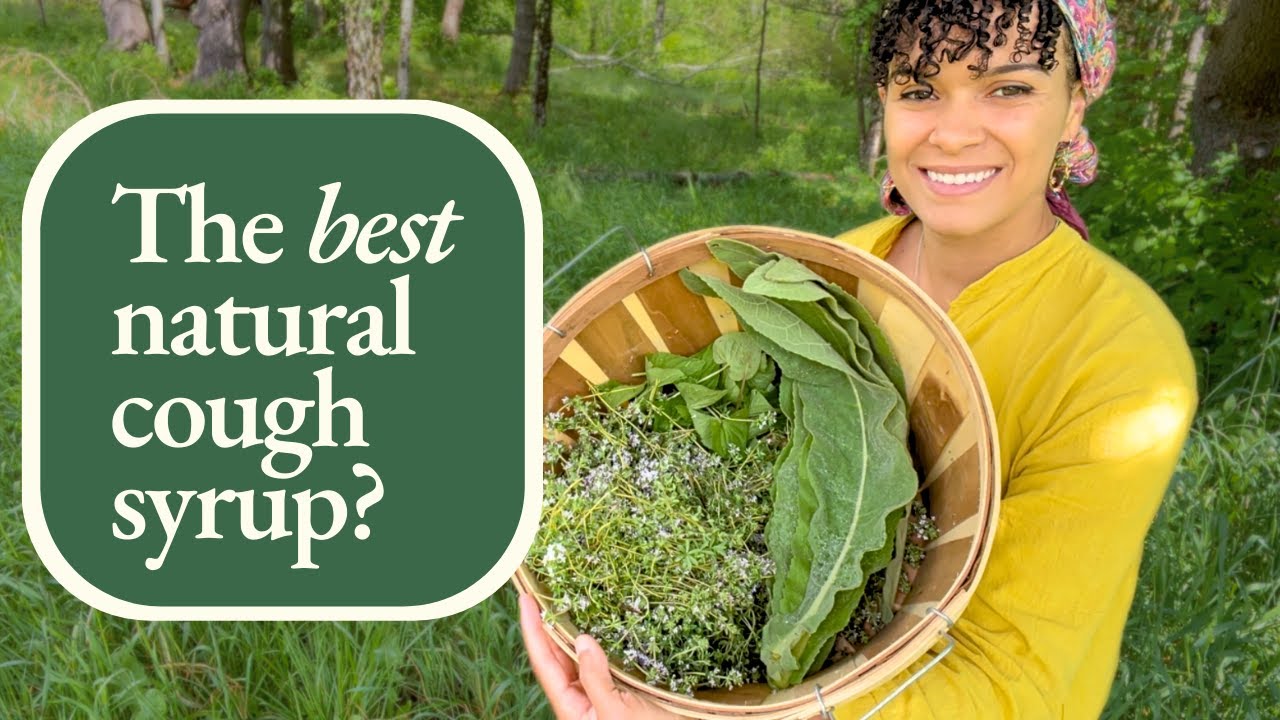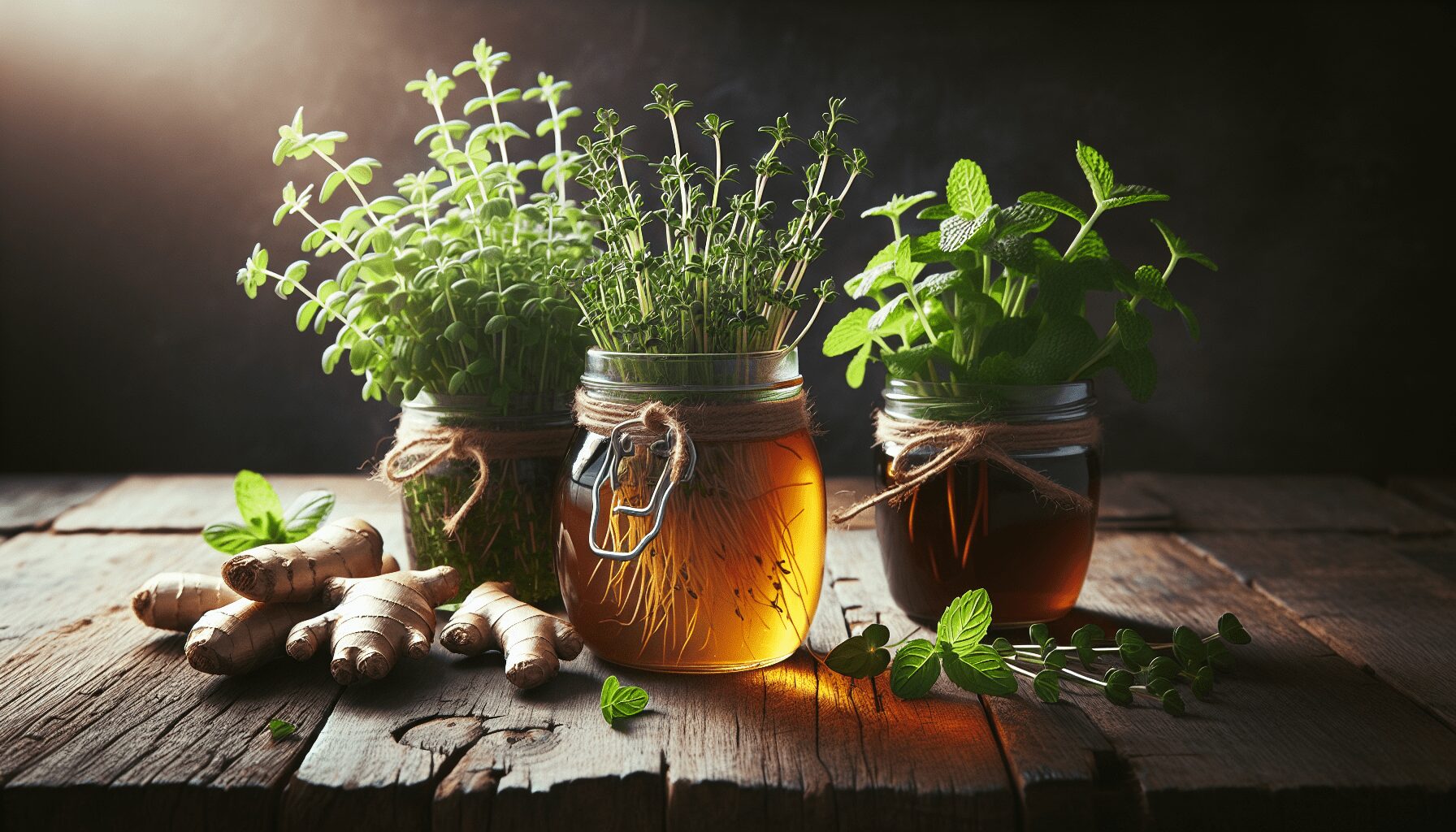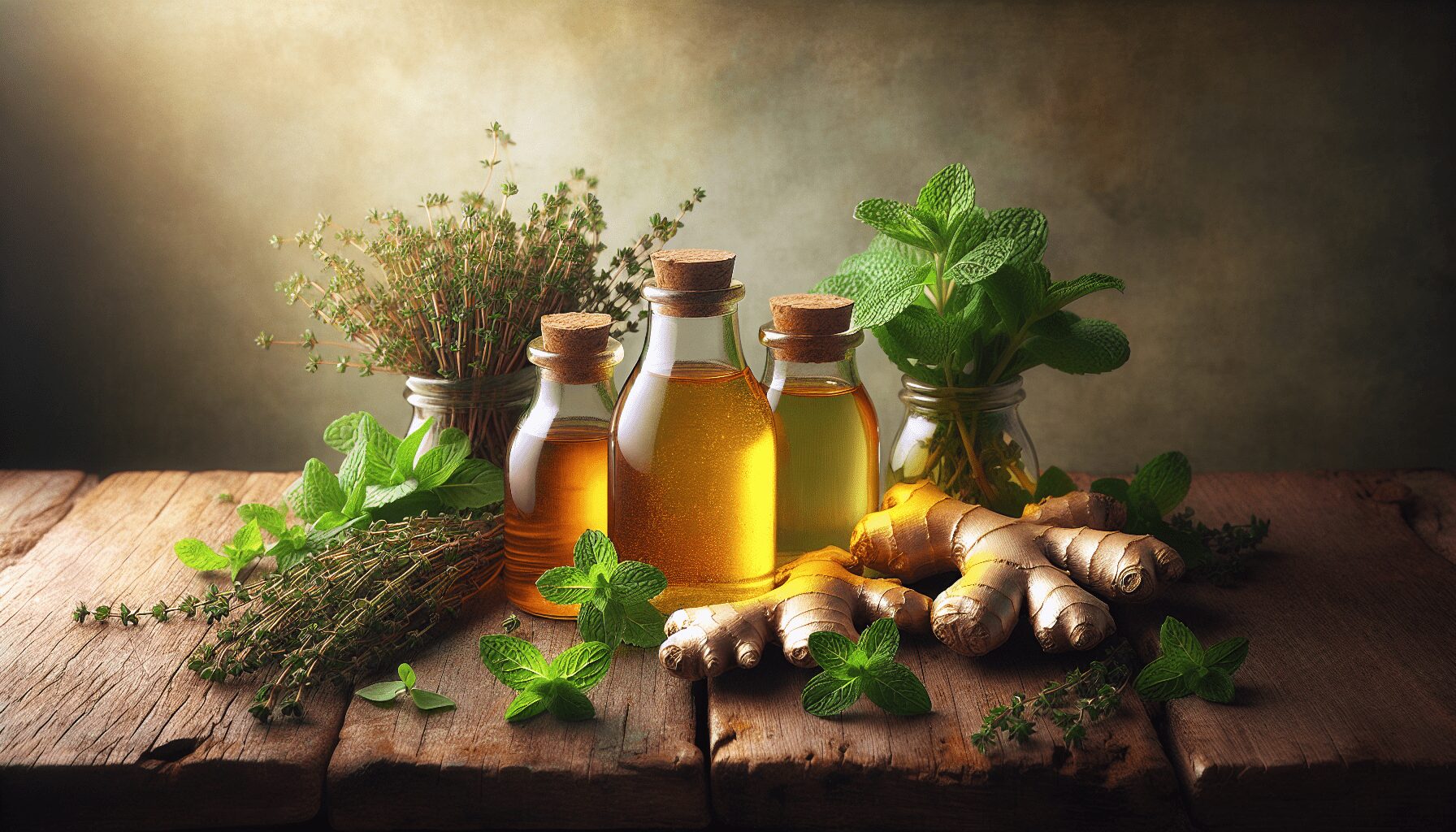Discover the magic of natural remedies with “Homemade Cough Syrup That Works! Just 3 Herbs!” Created by The Acadian Garden & Apothecary, this article will show you how to make an effective herbal cough syrup using just thyme, mullein, and violets. You’ll not only learn how to prepare the syrup but also explore the medicinal benefits of each herb, turning an ordinary cough remedy into a soothing, natural experience.
As you follow along, you’ll find tips for foraging herbs in your garden, insights into the culinary and medicinal uses of thyme, and detailed steps for crafting an herbal decoction. This guide is perfect for anyone looking to create a homemade remedy that balances and alleviates dry, scratchy throats and sore lungs. Just imagine the satisfaction of curing your cough naturally while enjoying the bounty of your garden!
Identifying the Right Herbs
Embarking on the journey of making your own herbal cough syrup is both rewarding and incredibly beneficial for your health. Understanding the types of herbs to use and how to harvest them sustainably is the first step.
Foraging Herbs in the Garden
Your own garden can be a treasure trove of medicinal herbs. Foraging involves identifying and gathering herbs that grow in your backyard. Be sure to research and understand the characteristics of each plant to avoid confusion with potentially harmful lookalikes. It’s important to forgage responsibly, taking only what you need and leaving enough for the plant to continue growing healthily.
Sustainable Harvesting Practices
Sustainable harvesting ensures that herbs are gathered in a way that allows the plants and their environment to thrive. Only take a portion of the plant, leaving enough behind to guarantee it can regrow. Avoid pulling the plant out by the roots unless necessary. For leaves and flowers, use clean scissors to make precise cuts, and for roots or barks, ensure you are not overly disrupting the area.
Thyme: Culinary or Medicinal?
Thyme is a versatile herb that has found its way into both kitchens and medicine cabinets for centuries. Understanding its dual role will help you appreciate its inclusion in your homemade cough syrup.
Introduction to Thyme
Thyme (Thymus vulgaris) is a small but potent herb known for its aromatic fragrance and diverse uses. Native to the Mediterranean region, thyme has been a staple in culinary practices and traditional medicine.
Medicinal Benefits of Thyme
Beyond its culinary appeal, thyme boasts several medicinal properties. It is an expectorant, helping to clear mucus from airways, and has antimicrobial and antifungal properties, which can aid in fighting infections. Thyme also contains anti-inflammatory compounds, making it useful for soothing sore throats and bronchial conditions.
Harvesting and Preparing Thyme
Harvest thyme by cutting the plant back to about 2 inches above the soil level. The best time to pick thyme is just before it flowers, although the flowering tops are also medicinally valuable. Wash the thyme gently and trim off any woody stems before using it in your herbal decoction.

This image is property of i.ytimg.com.
Understanding Mullein
Mullein, often found growing wild, is a powerful herb used in traditional remedies, especially in respiratory care.
Overview of Mullein
Mullein (Verbascum thapsus) is a biennial plant recognized for its tall, flowering stalks and large, fuzzy leaves. It is commonly found in fields and along roadsides, making it accessible for foragers.
Medicinal Properties
Mullein is renowned for its soothing effects on the respiratory system. It acts as an expectorant, helping clear mucus, and its mild sedative properties help to ease coughs and bronchial irritations. It’s also anti-inflammatory, making it beneficial for reducing swelling and irritation in the airways.
How to Harvest Mullein
To harvest mullein, cut a few large leaves from the plant, ensuring to leave enough foliage for the plant to continue its growth cycle. Rinse the leaves thoroughly to remove any dirt or insects. For best results, use freshly harvested leaves or dry them properly for storage.
Violet: A Cooling Herb
Violets are not just pretty to look at; they offer significant medicinal value, particularly for cooling and soothing irritated tissues.
Identifying Violets
Violets (Viola spp.) are small, delicate flowering plants that can be found in shady areas, gardens, and woodlands. They are identifiable by their heart-shaped leaves and vibrant purple, blue, or white flowers.
Health Benefits
Violets are known for their mucilaginous (gel-like) properties, which provide a soothing, cooling effect on inflamed tissues. They are also valuable as an expectorant, helping to loosen and expel mucus. Additionally, violets contain salicylic acid, which may help alleviate pain, similar to mild aspirin.
Proper Ways to Harvest
When harvesting violets, pick the leaves and flowers during the early spring. Ensure to leave part of the plant intact for continued growth. Clean the leaves and flowers gently before using them in your preparations.

Preparation Basics
Understanding basic herbal preparation methods is essential. One of the most common techniques is making an herbal decoction.
What is an Herbal Decoction?
An herbal decoction involves simmering herbs in water to extract their active constituents. It is particularly useful for tougher plant materials like roots, barks, and seeds, although leaves and flowers can also benefit from this method.
Essential Tools and Ingredients
For making a decoction, you will need a large pot, filtered water, a strainer, and your herbs of choice. Depending on the recipe, you might also need a knife or scissors for chopping the herbs.
Step-By-Step Decoction Guide
- Measure and prepare your herbs: Use the proper ratios and chop the herbs finely.
- Add water and herbs to a pot: Typically, use four cups of water for every ounce of dried herbs.
- Bring to a boil: Start on high heat until the water reaches a boil.
- Simmer: Reduce the heat and let the mixture simmer gently for 30 minutes to 2 hours, depending on the herbs used.
- Strain and store: Use a fine mesh strainer to remove the plant material and transfer the concentrated liquid into a glass container.
Making the Syrup
Once you have your decoction, the next step is turning it into a soothing syrup.
Combining the Herbs
Combine thyme, mullein, and violets in your pot. Aim for a balance that provides complementary medicinal effects. For example, use equal parts of each herb to ensure a well-rounded syrup.
Simmering the Mixture
Add water to the pot and bring it to a gentle boil. Allow the mixture to simmer until the water reduces by about half. This process typically takes 1 to 2 hours, ensuring that the water extracts the essential compounds from your herbs.
Straining and Final Preparation
After simmering, strain the mixture through a fine mesh or cheesecloth to separate the liquid from the plant material. Pour the strained liquid back into the pot and simmer again to reduce it further if needed, concentrating the decoction.

Adding Preservatives
Preservatives are essential for ensuring your syrup lasts and remains effective.
Choosing the Right Preservative
Several natural preservatives can be used, including alcohol, vegetable glycerin, and honey. Each offers unique benefits and can extend the shelf life of your syrup.
Using Vegetable Glycerin
Vegetable glycerin is a sweet, safe-to-consume preservative. Add it to your decoction at a ratio of about 1 part glycerin to 5 parts decoction for effective preservation.
Including Medicinal Honey
Honey not only preserves but also enhances the medicinal properties of your syrup. Use raw, unfiltered honey for the best results. Mix in honey at a ratio of about 1 part honey to 4 parts decoction.
Storage and Shelf Life
Proper storage techniques can significantly affect the longevity and potency of your herbal syrup.
Proper Storage Techniques
Store your syrup in dark glass bottles, ideally with a tight-fitting lid. Keep it in a cool, dark place like a pantry or refrigerator to slow down any potential spoilage.
Expected Shelf Life
With the addition of preservatives like glycerin and honey, your herbal cough syrup can last between 4 to 6 months without refrigeration. When refrigerated, it can last even longer, often up to a year.
How to Extend Shelf Life
Ensure all containers and utensils are sterilized before use. Store smaller batches and label each bottle with the preparation date. Additionally, always use a clean spoon when dosing to prevent contamination.
Dosage and Usage
Knowing how to correctly dose and utilize your cough syrup is crucial for its effectiveness.
Recommended Dosage
The typical dosage for herbal cough syrup is 1 to 2 teaspoons every 3 hours. Adjust according to your needs and how your body responds.
When to Take the Syrup
Take the syrup at the onset of symptoms, and continue every few hours until symptoms subside. It is particularly effective before bed to help reduce nighttime coughing.
Observing Effects
Pay attention to how your body reacts to the syrup. Look for improvements in your symptoms, such as reduced coughing, easier breathing, and less irritation. If symptoms persist or worsen, seek professional medical advice.
Conclusion
Recap of Key Points
Making your own herbal cough syrup with thyme, mullein, and violets is a natural and effective way to soothe a sore throat and respiratory irritations. Sustainable harvesting and proper preparation are key to creating a potent remedy.
Encouragement to Try Making the Syrup
Experimenting with homemade remedies empowers you to take control of your health using nature’s gifts. Give this herbal cough syrup recipe a try and see the benefits firsthand.
Final Thoughts
Always remember that while homemade remedies can be effective, they are not a substitute for professional medical advice, especially for persistent or severe symptoms. Keep learning, experimenting, and enjoying the journey of herbal medicine!